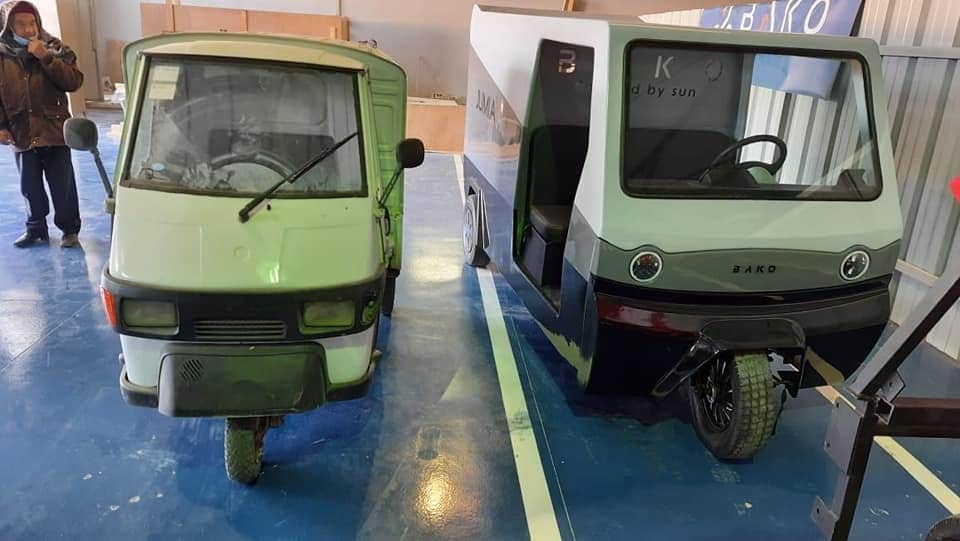It is in Hammam Lif, a coastal town of 45,000 inhabitants located in the southern suburbs of Tunis, that the start-up Bako Motors has chosen to set up for the production of electric vehicles. Founded by entrepreneur Boubaker Siala, the German-Tunisian start-up intends to manufacture locally and export electric tricycles and bicycles from the second half of 2022.
These solar-powered machines will initially be deployed in several governorates, including Sousse, Kairouan, Tozeur and Sfax. Subsequently, the start-up plans to launch a subsidiary in Nigeria in December 2022 and another in 2023 in the Middle East, notably in Riyadh, Saudi Arabia.
Conquering the electric mobility market
Bako Motors is developing a new model of electric vehicles that have a cargo format and should meet the needs of home delivery. At least 70 vehicles from its range have already been ordered and sold, but are still in production for delivery in June 2022 at a price of 12,000 dinars (3700 euros) excluding tax.
“The engine of the three-wheeled car (tricycle) can travel about 17,500 km per year (50 km/day) simply by harnessing solar energy. It costs 1.5 dinar (0.46 euro) in energy for 100 km, with a maximum speed of 45 km/h. It is equipped with a satellite positioning system (GPS) and has a loading capacity of 350 kg. The charging time of this car is about 2 hours by domestic plug (up to 80%), or 5 to 6 hours by solar panel,” says Boubaker Siala, founder and manager of Bako Motors.
Decarbonising the transport sector
In Tunisia, renewable energies represent some 5% of the national electricity mix. Bako Motors, which employs 27 technicians and engineers, is committed to the promotion of green mobility via clean energies, particularly solar energy. This will contribute to the government’s ambition to reduce greenhouse gas emissions by 46% by 2030.
Read also-TUNISIA: TotalEnergies to equip Tunis with a charging network for electric vehicles
Moreover, in 2018 the Tunisian government set up a programme to promote electric mobility aimed at reducing the energy consumption of transport and its environmental impact through the introduction of electric or hybrid vehicles. This strategy, supported by the National Agency for Energy Management (ANME), consists of testing electric or hybrid vehicles in public and private transport, training stakeholders on technical aspects related to electric or hybrid vehicles and charging stations, and setting up regulatory and fiscal frameworks favourable to the adoption of electric mobility. Through this project, this North African country aims to have 50,000 electric vehicles on the road by 2025.
Benoit-Ivan Wansi
